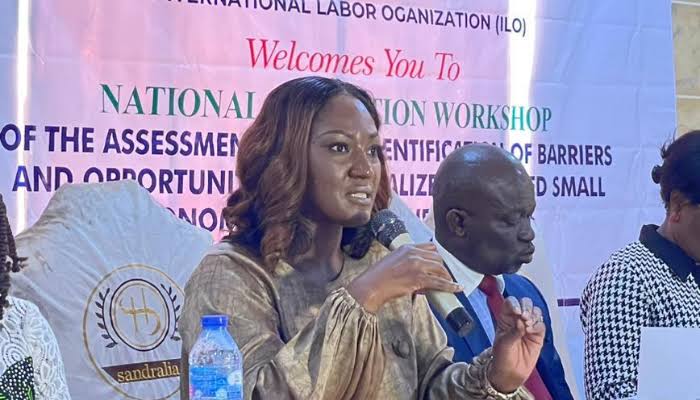The International Labour Organisation (ILO) in collaboration with the Nigeria Employers’ Consultative Association (NECA) and NECA’s Network of Entrepreneurial Women (NNEW) have initiated the Women Entrepreneurs Self-check (WE Self-Check) action plan to formalize gender relations and advance women’s business in Nigeria.
The two organisations at the launch of Women’s Entrepreneurship – WE Self-Check Action Plan in Lagos, stressed the need for the government and major actors in the economy to be deliberate and intentional in policy and measures that promote women entrepreneurship and gender equality.
According to ILO Facilitator Dr. Obiageli Nwobi, the project’s goal, will allow NECA and NECA’s Network of Entrepreneurial Women (NNEW) to adopt gender-responsive measures to better target and serve women entrepreneurs and increase representation in both the association and the network. The project will run from August 2021 to April 2023.
According to her, the action plan called for a thorough assessment of women’s needs, issues, and preferences as well as issue-based laws that safeguard women against things like gender harassment.
“With the improved services, members can qualify to join NECA, which is a larger platform for businesses. The process is supposed to be mutually beneficial to the organisation rendering it.
“The action plan will qualify NECA-ILO’s certificate of recognition as an organisation that is favourably disposed to women. It is a mutually beneficial relationship that favours women entrepreneurs and the organisation implementing it,” she said.
The Director-General of NECA, Adewale Oyerinde, who was represented by Celine Oni, the director of learning and development, assured the ILO that NECA was fully on the ground to guarantee that the action plan is carried out.
Additionally, Funmilayo Arowoogun, President of NNEW, stated that the goal of the self-assessment tool was to increase the ability of women and their companies.
She named issues with funding difficulties, policy reversals, insecurity, and ease of doing business as some of the difficulties faced by women entrepreneurs.
She advocated a good working environment, adding: “Our plan is to move the informal sector to formal for better assessment of opportunities for women entrepreneurs in Nigeria.”










